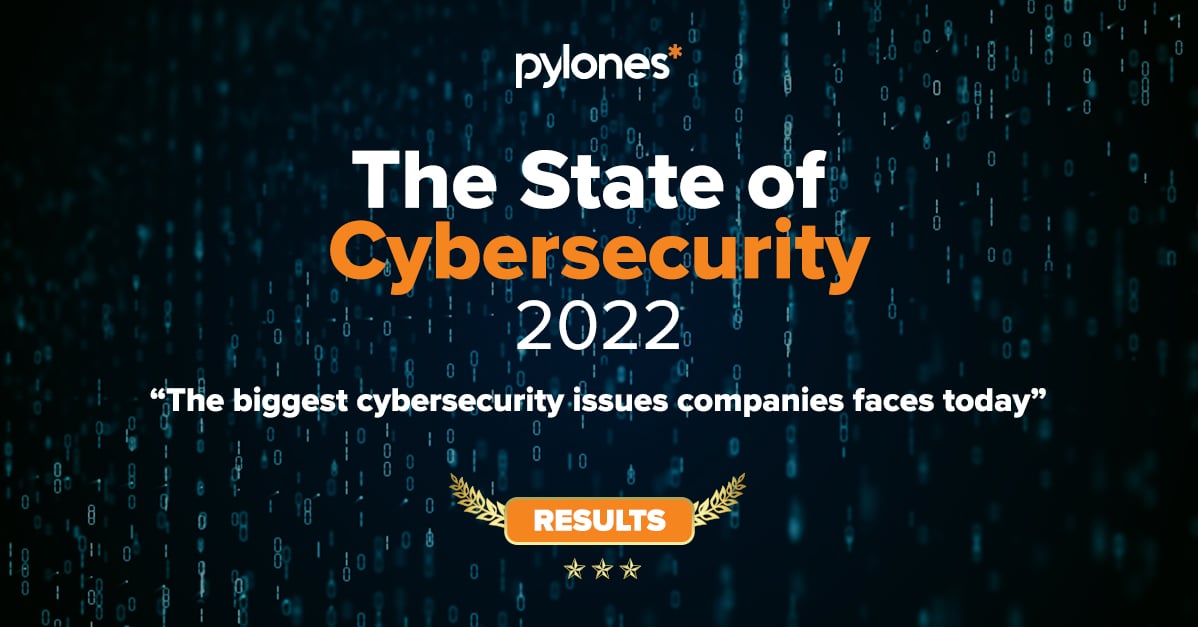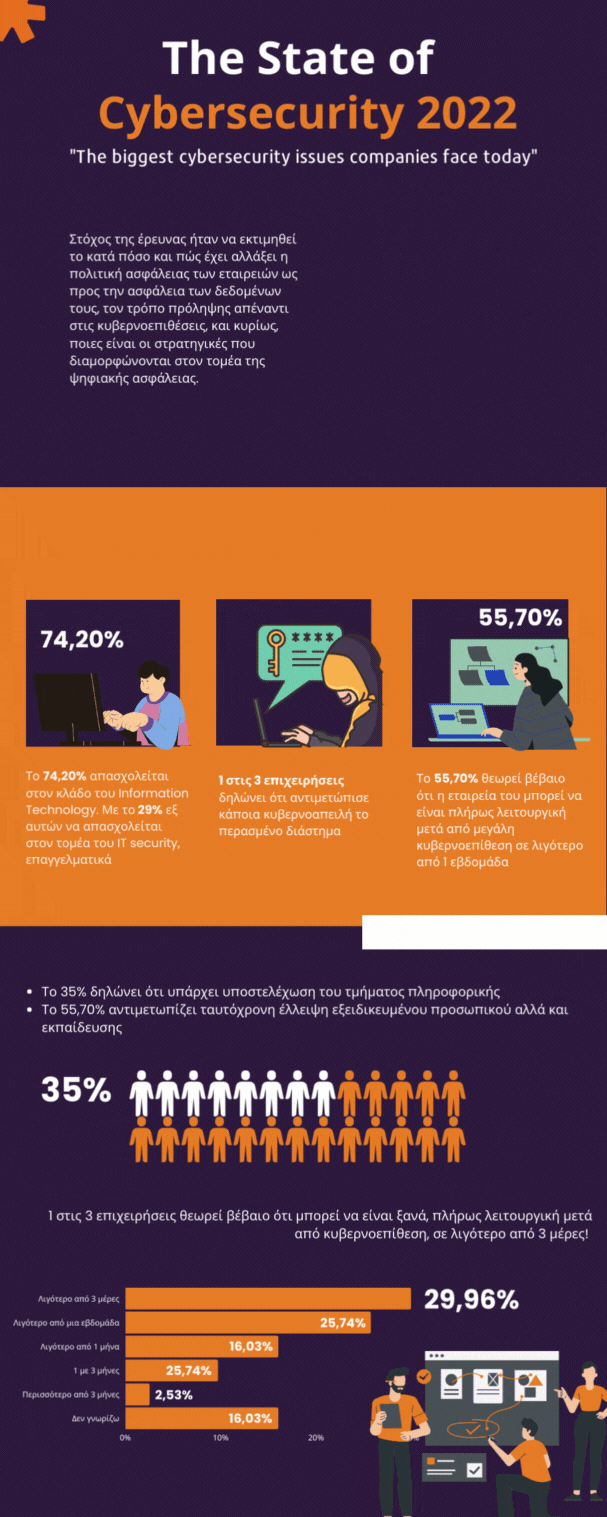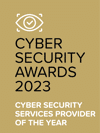
Athens, Greece – 07 December, 2022 – Pylones Hellas, a provider of advanced IT solutions to medium and large enterprises, with presence for more than 25 years in Greece, Cyprus and the wider region of South-eastern Europe as IT systems & Cybersecurity Integrator, announces the results of the 3rd national survey “The State of Cyber Security 2022”, regarding the main cyber security issues IT faces nowadays.
The research was carried out by Pylones Hellas, with the support of the Professor Christos Xenakis from the Digital Security Laboratory, Department of Digital Systems at the University of Piraeus, the Hellenic (ISC)² Chapter and in collaboration with IT Security Pro magazine.
The aim of the research was to assess to what extent and how the security policy of companies has changed in terms of their data security, the way of prevention against cyber-attacks, and above all, what are the strategies being formed in the field of digital security. With this research, the source of the problem becomes more understandable, but above all, the cybersecurity strategies that can be followed become more targeted.

“The past three years have left an indelible mark on businesses and organizations as the number and variety of cyber security threats has increased rapidly. Along with the pandemic that brought the remote working, businesses and organizations were forced to adapt to a new cyber environment and a new, more digitized society, which simultaneously created opportunities for new cybercriminals. The risks and threats for the people who deal with the security of business systems multiplied, without of course the corresponding increase in personnel and “cyber budget”, as can be seen from the results of the research. Are the tools that have the security officers sufficient to do their job properly? Have the right aspects of their IT infrastructure adequately protected? Should user protection be at the forefront of every strategic decision with identity & access management being the new “next big thing” in cybersecurity?” Mr. Emmanuel Netos, CEO of Pylones Hellas mentions some of the main questions that occupied the research.
Profile of participants
Over 250 IT professionals and executives from a variety of industries participated in the survey. Mainly the participants of the survey are employed in large and medium-sized enterprises, which mostly belong to the IT sector (23.60%) with the Public sector (17.70%) and the Telecommunications sector (10.50%) to follow.
74.20% of the participants are working in a key position in the Information Technology industry with 16.50% of them in decision making positions, holding a manager or C-level position. In addition, the 29% stating that they are involved in the field of IT security professionally.
Cybersecurity and Greek Companies
1 in 3 businesses say they have experienced a cyber threat or cyber security breach in the past, with 8.50% saying it had an impact on their business operations. Worth mentioning is the fact of preparedness that organizations state they can have in the event of a large-scale cyber attack. 55.70% of respondents feel confident that their company can be fully operational after a major cyber-attack on their systems in less than 1 week with 30% of them even feeling that they can be productive again in less than 3 days!
The main factors that prevent companies from building an integrated cyber security plan according to the respondents are two: The understaffing of the IT departments (35%) with the simultaneous lack of specialized staff and their training (55.70%), to be in the frontline once again, confirming the brain drain that the technology sector is experiencing in our country. The second important factor is the lack of financial resources (29.10%). Greek businesses nevertheless appear to be starting to take cyber security more seriously after the pandemic and the explosion of more sophisticated attacks, with 50.60% stating that their company’s IT security budget has increased in the last 12 months!
The Cyber Challenges
When threats are at an organization’s doorstep, the areas that appear to be least prepared, given the stages of the cybersecurity lifecycle, are Response (12.60%), Identification (21.10%) and the Recovery (Recovery/ Restore after an attack) with 22.80% respectively! It is clear that due to the pandemic businesses have invested heavily in security (Protection against risk) at 45.10% and Monitoring & Detection 44.30% neglecting what will happen when they are attacked and how will they get their organizations back on track!
Data is the new oil…and cybercriminals know this well, with data coming into their focus more and more recently. The top security threats that appear according to the research to be of most concern in relation to the protection of the data and systems of each company are by far Malware at a rate of 46.90% with Phishing attacks being in the foreground as well with a percentage of 38.40% and Credential staffing being once again one of the risks that complete the list (32%).
Finally, the entry points to the network or company systems that are considered more vulnerable are laptops with 38.40% and smart phones (37.10%) due to the extensive use of remote working. Portable storage devices (USBs) continue to be high-risk entry points at 30.80%, despite efforts to inform and train staff by IT departments of businesses!
Cybersecurity Trends
The ever-increasing access of users to corporate data seems to be of high concern to organizations. The main types of risks that concerns security departments are focused on attacks targeting the network (38%), compromise of user data (26.50%) and identity & access management (21.10%).
According to respondents, the most popular areas of cyber security in which businesses are expected to invest in the near future are Email Security and Protection (32%) and IT Security Awareness Training (31.65%). Cybersecurity awareness is at the top of companies’ agendas, as 57% of respondents state that their company implements a staff training program on cybersecurity awareness issues at regular basis, with occasional training of employees mainly in the context of internal trainings, rather than from external agencies or specialized companies.
Finally, it is worth noting that Business Continuity with a percentage of 60.70% and Data Security with a corresponding percentage of 58.23%, are the two main reasons why companies should invest in cyber security when it comes to cyber attack.
The evidence brought to light by the research can be interpreted in various ways. But the trends and the general conclusion seem to be clear. Greek businesses continue to ignore the cybersecurity risk as well as they have problems creating specialized teams that will deal exclusively with it in their teams. The shortage and insufficient staffing of IT departments appear to be the biggest bottleneck of all businesses, especially after the investments in technology hubs made by the technological giants in our country.
Worth mentioning is the fact that the majority of organizations consider that with an antivirus or network firewall they can be safe against increasingly complex cyber attacks. The end user is in the core once again, with organizations confirming that they are the weakest link in penetrating their systems and data, but on the other had they don’t have the implementation of an “identity and access management” strategy as their immediate priority.
About Pylones Hellas
Pylones Hellas, member of the Cypriot group P.M.Tseriotis Ltd, is active for more than 25 years in the field of digital technologies and internet security. The company combines the services of both IT systems integrator and IT security integrator, consisting a pioneer IT provider for the Greek market. Based on three significant pillars Security, Optimization and High Availability, Pylones Hellas provides cutting-edge technology solutions, on any scale, in multiple demanding sectors such as Telecommunications, Hotels, Financial institutions and companies that base their business on the Internet, while continuing updating its customers’ Information Technology Infrastructure, to provide, in turn, a high level of digital services to their customers.
Pylones Hellas are cooperating as partners with F5, AWS, HPE, IBM and Microsoft offering numerous solutions in areas such as security, wired and wireless networks, storage, business critical systems, datacenters and cloud.
For more information please visit: www.pylones.gr | LinkedIn | Facebook Page | YouTube
For more details, please contact:
Mr Alexandros Vafeiadis: Marketing & Communication Office
Τel. 210-7483700 | Fax 210- 7480196 | E-mail: avafeiadis@pylones.gr.





